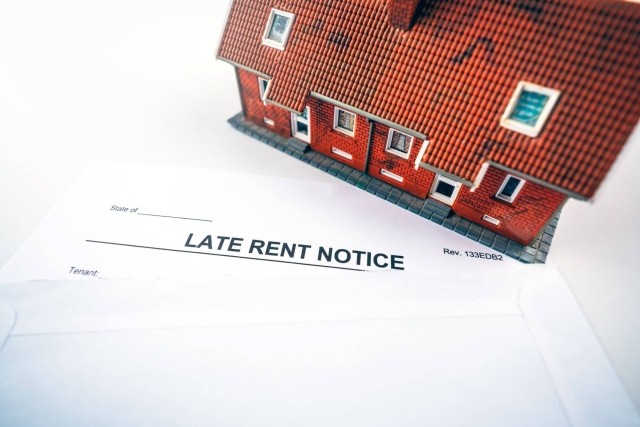If you live in a community of townhomes, condos, or single-family homes, or you’re just looking for your next property, chances are you’ve dealt with an HOA.
What Is an HOA?
An HOA, or Homeowners Association, is a legal body that upholds residents and the community to certain standards and provides and maintains amenities within the community. These standards, called covenants, codes, and restrictions, or CCRs, are the basis for maintaining the community, landscape, insurance, and finances of the community.
HOAs do demand fees of the residents in the community they oversee, which can range from $100 to well over $1,000 depending on where your home is, how large it is, and the average property values of the community. There are several pros and cons to owning property in a community with an overseeing HOA, so it’s up to you to decide if the costs are worth it for you and your tenants.
Who Pays HOA Fees?
You might be looking at a property and wondering, “who pays the HOA fees?” Do renters pay HOA fees, orr does it come down to you, the landlord? It really comes down to whoever the lease defines as responsible for paying HOA fees. Most commonly it’s up the landlord to pay these fees, because if your renters default or don’t pay them, you’re really the one on the hook should the homeowners association decide to foreclose on the home for unpaid fees. Most landlords include HOA fees in the rent they charge tenants, but some may ask the tenant to pay the fees directly.
If you decide to put this responsibility on your renters, make sure you have a section in your lease clearly stating that HOA fees are the duty of the renter, how much the specific amount is, and what fines or repercussions the tenant can face for not paying them.
Luckily, Apartments.com can help you track any HOA fees your tenant pays. Our expense tracking platform helps you summarize rental expenses by property and tax category. From there, you can easily export them to CSV or PDF formats to make doing your taxes a breeze. Unlike our competitors, there’s no need to go off-site to a third party for required forms. With Apartments.com, you can download the required tax filing forms directly from your account, and they are backed up for seven years.
What Do HOAs Do?
If you’re looking to purchase a rental property, or an apartment or house for yourself, you might be weighing the pros and cons of dealing with a homeowners association. After all, there’s a lot that your HOA handles that could make your decision a matter of balancing the scales.
Pros of an HOA
You might not have to worry about landscaping
In communities overseen by an HOA – mainly townhome communities and condominiums – you won’t be responsible for maintaining the lawn and other landscaping features. Consider your weekends free again.
Your home could better retain its value
Many homes inside HOAs sell for two to five percent higher than homes outside of HOAs. Why? Stricter rules around maintenance, appearance, modifications, and more will most likely keep homes in better shape and appeal to a wider range of potential buyers.
Amenities aplenty
Many communities under HOAs offer amazing amenities like pools, playgrounds, gyms, and venue space for residents to use. The fees you pay to the HOA should go to maintaining these facilities as well.
Cons of an HOA
Money, money, money
The biggest detraction from HOAs is the fact that they cost money. Depending on where your home is, the average property values, and how big your home is, you could pay up to $1,000 in HOA fees. HOA fees are not usually included in your mortgage either, so it’s another monthly cost to keep track of.
You risk lien or foreclosure
If you go months without paying your fees, the HOA can seize your home or even foreclose on it. Even if you’ve left it up to renters to pay these fees, you’ll be the one dealing with the repercussions of a foreclosure on your record.
You can’t do whatever you like to your home
Part of an HOA’s responsibility is maintaining a certain standard for the community it oversees. All the homes or units in your community may display elements of the same architectural style or use a consistent color scheme across the exteriors. This means that if you want to modify your home, the HOA has to approve whatever change you would like to make, and if they don’t think it’s in line with their standards of the community, you’ll have to rethink your approach.
HOAs can also set standards for how tall your grass can be (if they don’t cover lawn care), how many cars can be in your driveway, how many pets you can have, and even what type of signage you can put on your lawn, such as “For Rent” ads or political signs. If you had dreams of an eclectic home color scheme or fanciful landscaping, you might find it difficult to get such things approved by an HOA.
How Do HOAs Affect Renters?
As long as your HOA allows renters, your tenants shouldn’t have anything to worry about when it comes to abiding by HOA requirements. Fees must be paid on time (whether the landlord is responsible or the tenant), and tenants must keep the property in a condition that abides by the CCRs of the homeowners association. In some states, landlords may lose their right to facilities maintained by the HOA like pools, gyms, and clubs since their tenant is the one residing at the property. All rights to those facilities can be transferred to the tenant.
When it comes to renting to tenants with pets, check with the HOA that your right to own a pet can be transferred to your tenant. Some associations restrict what rights can be transferred to tenants.
Dealing with an HOA can be a confusing part of a landlord-tenant relationship. However, you may find that the benefits can outweigh the costs. Just be sure you’re clear on the monthly HOA fees and budget accordingly. If you decide to make the HOA fees the responsibility of your tenant, outline the terms in your lease clearly. Once you’ve sorted out who will pay the HOA fees, you can rest easy knowing well-maintained homes and amenities are at you or your tenant’s disposal, and that you might even sell your property for a bit more than you expected down the line.











